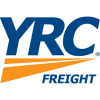Poland Post tracking packages and shipments
Keep track of Poland Post parcels and shipments with our free service! All you need to do to track your parcel, is to enter the tracking number, and then the service will keep track of your parcel’s location in real time.
How do I track my Poland Post parcel with 100Parcels.com?
- Find out the tracking number of your parcel;
- Enter the tracking number of your parcel in the field at the top of the page;
- Wait until the service checks the parcel data, it will not take long;
- View the search results and share them with your friends via social networking;
- If you enter your email address, we can notify you automatically of changes to the status of your parcel.
Poland Post - Tracking number format
- A# *** *** *** PL
- C# *** *** *** PL
- E# *** *** *** PL
- H# *** *** *** PL
- L# *** *** *** PL
- R# *** *** *** PL
- S# *** *** *** PL
- U# *** *** *** PL
- V# *** *** *** PL
- P00 *** *** *** **
- P02 *** *** *** **
- P03 *** *** *** **
- P04 *** *** *** **
- 00 * 590077**** *** *** *
- 00 * 590077**** *** *** * *
# - letter; * - digit; ! - letter or digit
Is Poczta Polska fast?
Poczta Polska is usually fast for shipments within Poland. International deliveries may take a while, especially if the package contains documents or other small items such as jewelry. For packages containing large and heavy goods, it can be up to two months before an item reaches its destination country.
Are the Poland Post shipping fees expensive?
No. Poland Post shipments are not expensive and the prices depend on weight, dimensions, and distance of shipping.
About Poland Post
Poczta Polska is the national mail service of Poland. It was founded in 1558 and handled all intercontinental correspondence from 1764 to 1830, after which its monopoly for the domestic post held up until 1886.
In 1989 Poczta Polska separated into five regional companies: “Poczta Główna” (Main Post Office), “Pocztowe Towarzystwo Ubezpieczeń Wzajemnych” (PTUW – Postal Mutual Insurance Company), “Polskie Koleje Państwowe” (State Polish Railways) with a controlling stake of 50%, as well as three other subsidiary companies: “Poczta Polska Spółka Akcyjna” (Polish Post PLC), “Zakład Usług Komunalnych i Mieszkaniowych w Łodzi s. a.” and the “Pocztowe Zakłady Pracy S.A., ZT Krzesiny-Laski sp z oo.
The company was privatized in 1990-1995, with its main shareholders being: Ghelamco Poland Development Company Ltd.: 33%, Europharma SA: 20% + two seats on board of directors, "Nowa Poczta" Joint Stock Co - National Postal Savings Bank: 20% + two seats on board of directors, and the employees: 17%.
The Poczta Polska service is divided into three companies: “Poczta Polska SA” (Postal Services), “Operator Logistyczno-Expressowo-Branżowy – POLITYKA Sp. z o.o.” which operates under a concession agreement with Poland Post SA ("POLITICA" Group) until 2022, as well as the wholly owned subsidiary "Polskie Koleje Państwowe", responsible for rail services to international destinations from Warsaw's main station. The company delivers over 100 million items per year throughout Poland and abroad via its own and franchise post offices.
The company is an official partner of FIFA World Cup 2018 in Russia, UEFA Euro 2012 in Poland and Ukraine, The Internationale Funkausstellung Berlin (IFA), IFA 2009; The International Tourism Exchange - ITB Berlin 2008-2012; Kieler Woche 2010 – the largest sailing event worldwide as well as various other sporting events such as FIVB Men’s Volleyball World Championship 2007 held in Japan or Summer Universidad 2011 which was hosted by Poland. In addition to this, it has a partnership with “Bayern Munich Football Club". It also supports music festivals including Orange Warsaw Festival 2013/2014/2016/2017; Coke Live Music Festival–2010; Open’er Festival; Main Square; Jarocin.
The company also holds several exclusive agreements with "Nokia Siemens Networks" and the “International Association for Dance Education - IADT". It is among co-organizers of Poland Fashion Week, International Film Festival in Gdynia, Polish Jazz Days Warsaw 2016/2017, or New Horizons IT Conference 2017. In addition to this Poczta Polska supports many hospitals including Medical University Hospital in Łódź (Lublin, Wrocław, Krakow), oncological hospital in Gliwice as well as children's hospices such as Hospicjum Domowe w Warszawie and Hospicjum Domowe w Poznaniu.
Services Poczta Polska including:
- DOMiO – a system that allows users to order and pay for deliveries from home. The service is available in five Polish cities: Warsaw, Kraków, Wrocław, Gdańsk, and Łódź. It enables buyers to access their orders 24/h 365 days per year by using the website or mobile applications;
- EKSPRES Delivery - an express delivery service offered by Poczta Polska that offers guaranteed next-day delivery between 96% of all Poland Post points of dispatch and 98% of all receiving points across Poland as well as street addresses outside these areas (rural zones). As such it can be used to deliver goods within one city or throughout the country;
- eKONTERM - a service to send parcels weighing up to 30 kg (66 lb). The fee for this is determined by geographic zone and ranges between PLN 12.00 and 19.99;
- Poczta Polska International Shipping – an international courier shipping company that uses the infrastructure of Poland Post, it's subsidiary companies as well as DPD Group to deliver shipments around the world;
- "POCZTA POLSKA 24" - after hours delivery services available on request;
- Poczta e-commerce - an online store that allows customers to order goods from companies using the services of Poland Post. Customers can choose delivery by post or courier, depending on their preferences;
- Pocztowy 24/48/72 – a service that enables users to have parcels delivered within 48 hours in major cities and 72 hours in other areas across Poland for a flat fee of PLN 18 per parcel no matter its size or weight. The service is available seven days per week between an early afternoon (after 12 pm) until late evening (before 11 pm);
- "Pocztex Kurier" Express Delivery Service– provides express deliveries with guaranteed next-day delivery times throughout Poland between 96% points of dispatch and 98% of all receiving points.
- Pocztowy Konin - an express courier service offered by the company in cooperation with its subsidiary Poste Restante SA, which provides services within a radius of 100 km from Konin for parcels weighing up to 30 kg (66 lb) for a flat fee of PLN 19 per parcel no matter its size or weight;
- "Poczta Polska Express" – fast couriers offering guaranteed next-day delivery between 96% points of dispatch and 98% of all receiving points across Poland as well as street addresses outside these areas (rural zones). As such it can be used to deliver goods within one city or throughout the country;
- Pocztowy Pakiet – a service for sending parcels weighing up to 30 kg (66 lb) within Poland. It has an annual fee of PLN 199 and includes insurance if the item is lost.
Poland Post - Parcel tracking statuses
| Otrzymano dane elektroniczne przesyłki |
| Handing over of item to customs |
| Przesyłka przyjęta w punkcie |
| Missed delivery - returned to sender |
| Zmiana kanału komunikacji |
| Send an e-mail for the shipment |
| Transfer for customs - export |
| Reception of the consignment in the country of destination |
| Delivered |
| Item arrived |
| Shipment return |
| Return to the sender |
| SMS notification sent |
| Shipment registration from KN |
| Nieudane doręczenie - kolejna próba dziś |
| Accepted in Poland |
| Reception with cargo |
| Delivery attempt - return to the sender |
| Rozliczenie celne przesyłki |
| Processing of item for delivery |
| Item delivery |
| Handed over for delivery |
| Receiving shipment facility |
| Wysłanie z ładunkiem |
| Item arrived to the delivery office |
| Package sent |
| Nieudane doręczenie - kolejna próba jutro |
| Detention in customs |
| Likwidacja księgi oddawczej po doręczeniu |
| Released from customs |
| Package sent from Poland |
| Zwolnienie przez urząd celny (poczta przychodząca) |
| Item delivered |
| Collection in office |
| Delivered |
| Próba doręczenia - dosłanie |
| Handing over of item to delivery |
| Acceptance of consignment |
| Collected at the post office |
| Re-notification |
| Posted |
| Shipment |
| Sending a package from Poland |
| Providing the recipient's signature |
| Customs Clearance |
| Arrived to Poland |
| Forwarded for delivery |
| Handing over the parcel for delivery |
| Package released by the customs office |
| Postal notice - item can be collected at the post office |
| Accepted in the destination country |
| Delivery |
| Failed delivery |
| Customs clearance |
| Collected at the facility |
| Introduction to return tome |
| Rejestracja w urzędzie doręczenia |
| Przyjęcie przesyłki w Polsce |
| Item posting |
| Etap przed zgłoszeniem celnym |
| Release of the consignment by the customs office |
| Adopted in Poland |
| Arrival of the shipment |
| Held by customs (incoming mail) |
| Wpis przesyłki do księgi wydanych |
| Przekazanie do lokalnego urzędu pocztowo-celnego |
| Released after customs inspection |
| Registration of the parcel at the delivery office |
| Decyzja o zwrocie przesyłki |
| Package acceptance |
| Prepared for delivery |
| Próba doręczenia |
| Wysłano powiadomienie e-mail |
| Repeat advice note - shipment to be collected at the facility |
| Wysłano powiadomienie sms |
| Sent from Poland |
| Advent |
| Advice - a parcel to be collected at the facility |
| Electronic shipment data received |
| Nieudane doręczenie - korekta rezultatu |
| Retention of a shipment in customs |
| Held by customs |
| Delivery of the parcel to the customs office |
| Shipment registration |
| In transit |
| Avizo |
| Wysłanie raportu o nadaniu do klienta |
| E-mail notification sent |
| Can be collected at the post office |
| To be picked up at the facility |
| Sending an SMS for the shipment |
| Received at destination country |
| Detention by customs (incoming mail) |
| Preparing the shipment for delivery |
| Delivery of the shipment |
| Sending shipment from country of origin |
| Przesyłka dostarczona do punktu |
| Customs control |
| Shipment in transit |
| Dostarczono do punktu odbioru |
















































